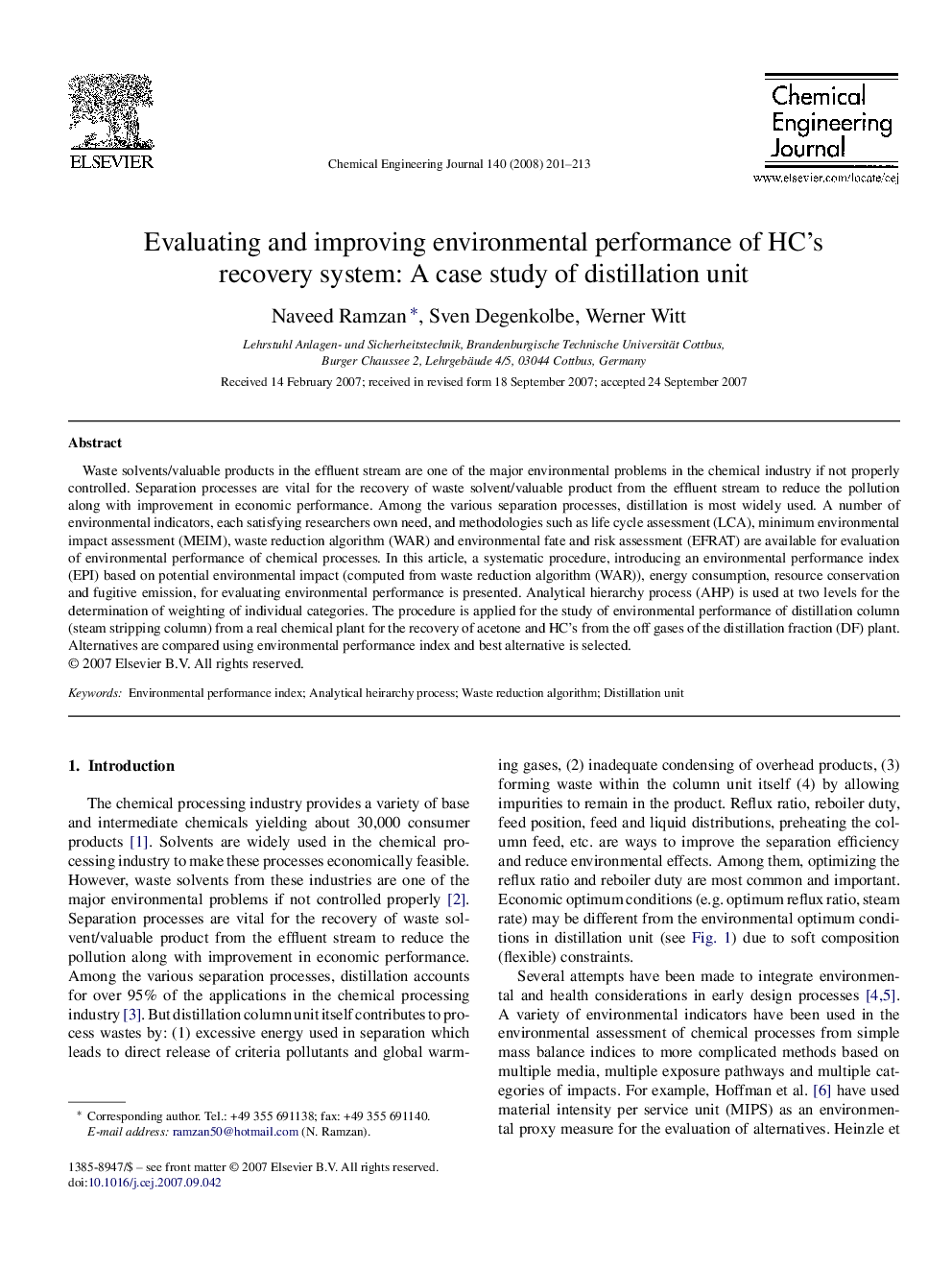| Article ID | Journal | Published Year | Pages | File Type |
|---|---|---|---|---|
| 153100 | Chemical Engineering Journal | 2008 | 13 Pages |
Waste solvents/valuable products in the effluent stream are one of the major environmental problems in the chemical industry if not properly controlled. Separation processes are vital for the recovery of waste solvent/valuable product from the effluent stream to reduce the pollution along with improvement in economic performance. Among the various separation processes, distillation is most widely used. A number of environmental indicators, each satisfying researchers own need, and methodologies such as life cycle assessment (LCA), minimum environmental impact assessment (MEIM), waste reduction algorithm (WAR) and environmental fate and risk assessment (EFRAT) are available for evaluation of environmental performance of chemical processes. In this article, a systematic procedure, introducing an environmental performance index (EPI) based on potential environmental impact (computed from waste reduction algorithm (WAR)), energy consumption, resource conservation and fugitive emission, for evaluating environmental performance is presented. Analytical hierarchy process (AHP) is used at two levels for the determination of weighting of individual categories. The procedure is applied for the study of environmental performance of distillation column (steam stripping column) from a real chemical plant for the recovery of acetone and HC's from the off gases of the distillation fraction (DF) plant. Alternatives are compared using environmental performance index and best alternative is selected.
